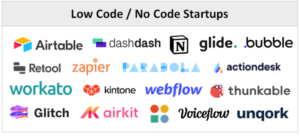Marketplaces as a platform and eCommerce channel continue to grow around us.
Their benefits are clear – rapid deployment using off-the-shelf Cloud-software enable new marketplaces to be stood-up in record time. They extend the reach of small businesses to a wider group of consumers. And they give consumers access to more products and services in one place, bundling them conveniently.
The flip side, a darker side, is they largely operate without accountability. So, you order you meal from Providoor, the meal doesn’t arrive as ordered, and you are instantly pushed back to the supplier on the site – say Supernormal. Supernormal is a great restaurant and small business – so can they scale to respond and sort the issue out? Ultimately you bought from or through Providoor – but Providoor operates without any accountability for the product delivered.
They appear to view themselves as an advertising medium, simply directing you to choices. But that isn’t what they are. They take orders, orchestrate orders, take payments, and clip the ticket. So, they are far from being, say, an online news outlet.
Having run into issues with both Providoor and Kogan, I wonder at what point a customer charter or something to that effect is needed. Hopefully this doesn’t need to mandated by the Government. But it might need to be to protect consumers.
Amazon is particularly good at this. When purchasing a product from Amazon, from a third-party and in their marketplace, Amazon does seem willing to step-in and sort an issue out. Much like Uber, their starting principle appears to be, “just make the customer happy”. And I’m guessing the cost of that happiness is ultimately just passed onto the marketplace participant.
Either way, we need new rules as Marketplaces rise. Or, we need much greater transparency during the purchase process of what you can expect in terms of service and remediating issues – including who is accountable.
Marketplaces are critical for SME businesses and vital to SME e-tailers. They should thrive. But they won’t if they disenfranchise and dissuade consumers from buying on them.
I’m not likely to buy from Providoor or Kogan again. But am likely to buy visit Supernormal.
Accountability starts where the purchase is made.








